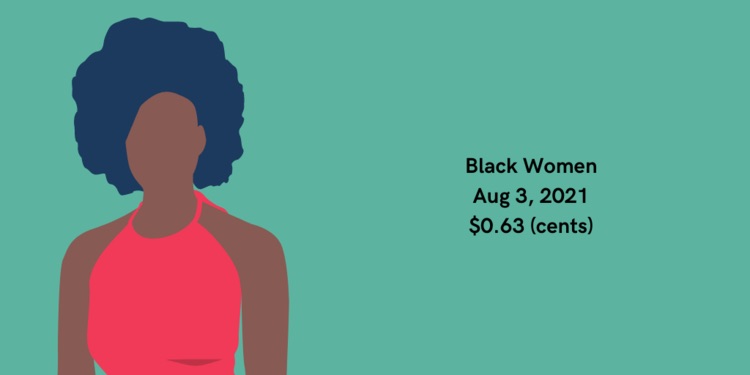One year’s salary. 20 months of work.
Few people could work for free, Monday to Friday, for over eight months of the year. So it may surprise you to learn that women across America have essentially been doing just that, but not through choice.
About Black Women’s Equal Pay Day 2021
Black women make $0.67 for every dollar made by a non-Hispanic white men. This means that they must work significantly more days until they receive the same pay as men. In essence, during these additional days, they’re working for free. Women’s Equal Pay Day marks the day on which the average full-time working woman finally makes the same amount of money that the average man did in the previous year. While this date landed on March 24th this year, Black Women’s Equal Pay Day has only just arrived: August 3rd. This means that eight months into the year, on average, Black women have only just made the same amount as men did last year. That’s 20 months of full-time work for one year’s salary.
But wait. What about the Equal Pay Act?
Yes, federal laws such as the Equal Pay Act and Civil Rights mean that women are to be paid the same amount for performing the same role as a man. However, there are still social constructs, biases, and barriers preventing women from reaching higher paid positions and truly achieving equality. And the figures make it clear that these barriers are even greater for Black women:“Barriers associated with traditional gender roles and our continuing legacy of slavery have devalued women and people of color, particularly Black people, denying them higher-paying jobs, fair treatment, and opportunities for advancement in the workplace.” Terry Fromson, Managing Attorney, Women’s Law ProjectEqual Pay Today also tells us that 80% of Black mothers are the breadwinners of the household, which means the significant pay gap is affecting families. This knowledge becomes even more concerning during the current pandemic, in which the economic fallout and job cuts are said to be falling hardest on women of color.
